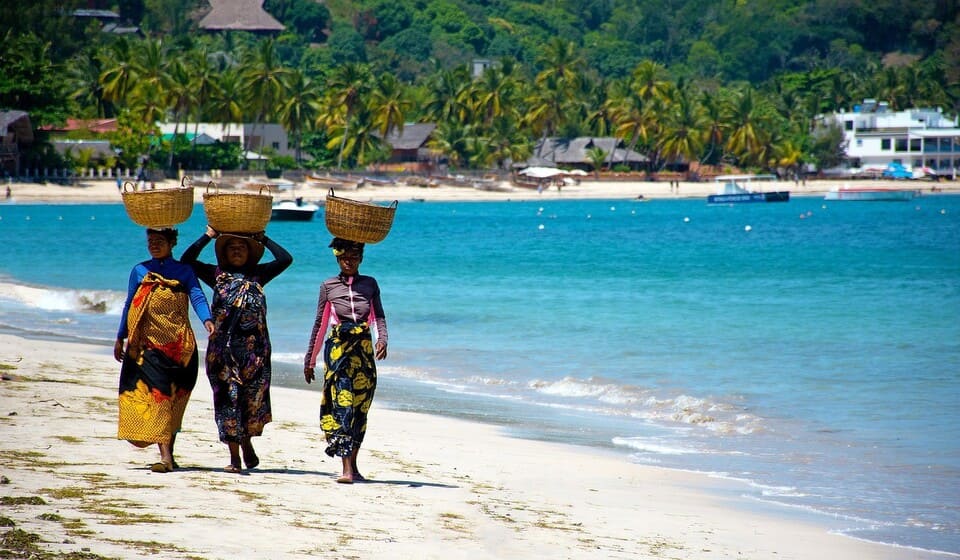
The Most Spoken Languages in Africa
Africa is a continent of immense linguistic diversity, with over 2,000 languages spoken across its 54 countries. These languages belong to various language families, including Afroasiatic, Nilo-Saharan, Niger-Congo, and Khoisan. Some languages are spoken by millions of people and serve as official or national languages, facilitating communication across diverse ethnic groups. This blog post will provide an overview of some of the major African languages that are widely spoken across the continent.
1. Swahili
Speakers: Over 200 million
Swahili is one of the most widely spoken languages in Africa, serving as a lingua franca in East Africa. It is spoken in Tanzania, Kenya, Uganda, Rwanda, Burundi, the Democratic Republic of the Congo, and parts of Mozambique, Malawi, and Zambia. Swahili belongs to the Bantu language group and has significant Arabic influences due to historical trade relations with the Arab world. It is an official language of the African Union (AU) and plays a crucial role in regional trade, politics, and education.
2. French
Speakers: Over 167 million (including first and second language speakers)
French is one of the most popular languages spoken throughout Africa due to its long-standing colonial presence on the continent. French is used as an official language in several African countries such as Mali, Senegal and Benin. It is also widely used as a lingua franca among different ethnic groups within many countries such as Cameroon and Chad. French is also the primary language taught in schools throughout Francophone Africa.
3. Arabic
Speakers: Over 100 million (including dialects in North Africa)
Arabic is one of the most widely spoken languages in Africa, particularly in North and West Africa. It is the official language of several countries, including Egypt, Sudan, and Morocco, and serves as one of the six official languages of the United Nations. Arabic has had a profound influence on many African languages and is commonly used in business and diplomatic settings. With over 300 million speakers across the continent, Modern Standard Arabic is used for official purposes, while each country has its own unique dialect for everyday communication.
4. Hausa
Speakers: Over 60 million native speakers, 100+ million total speakers
Hausa is a dominant language in West Africa, especially in Nigeria, Niger, Ghana, Cameroon, Chad, and Sudan. As a member of the Afroasiatic language family, it serves as a key language of commerce, education, and media. Hausa is widely used in business transactions and Islamic education, making it an essential language in West Africa.
5. Yoruba
Speakers: Over 45 million native speakers
Yoruba is an Afro-Asiatic language primarily spoken by more than 40 million people living mainly amongst Nigeria's Yoruba people group located near Lagos State and Ogun State (but can also be found scattered throughout Ghana). It has also been adopted by several diaspora communities living outside Nigeria including those living in Brazil where it continues to be used amongst Afro-Brazilian populations descended from slaves brought over from West African nations during colonialism times.
6. Igbo
Speakers: Over 44 million
Igbo is another major language in Nigeria, particularly in the southeastern region. It is part of the Niger-Congo language family and features various dialects. Igbo culture is deeply tied to its language, which is used in literature, commerce, and education. Despite its widespread use, English remains the official language of Nigeria, often used in formal settings.
7. Oromo
Speakers: Over 37 million
Oromo is one of Ethiopia's most spoken languages, with a presence in Kenya and Somalia as well. It belongs to the Cushitic branch of the Afroasiatic language family and has been historically marginalized in Ethiopia.
8. Amharic
Speakers: Over 32 million native speakers, 57+ million total speakers
Amharic is a Semitic language spoken by nearly 25 million people, primarily in Ethiopia's Amhara Region. As the official language of Ethiopia, it is one of the oldest languages in the Horn of Africa, with roots in the Ethiopic Alphabets dating back over 3,000 years. Amharic is also one of the three working languages at the African Union headquarters in Addis Ababa. It belongs to the South Semitic branch of the Afroasiatic language family and features Cushitic loanwords due to historical interactions with the Sidama and Oromo populations.
9. Shona
Speakers: Over 14 million
Shona is the most spoken language in Zimbabwe, with a significant number of speakers in Mozambique. It is a Bantu language that has various dialects and is closely related to Ndebele.
10. Zulu
Speakers: Over 12 million native speakers, 27+ million total speakers
Zulu is a language spoken mainly in South Africa, and it has been declared the official language of the country. Zulu is part of South Africa's Nguni family of Bantu languages which includes Xhosa, Swati, Ndebele (Northern) and Shangaan (Tsonga). Zulu has been adopted by some secondary school curricula as well, allowing Zulu-speaking learners to use their own language to access education. This recognition allowed for more widespread use within education systems which has resulted in its current popularity today - especially amongst younger generations growing up with access to better educational opportunities than their predecessors did during colonial times.
With thousands of languages spoken across the continent, some have gained prominence as national or regional languages, facilitating trade, governance, and education. As Africa continues to develop and integrate into the global economy, these languages will remain essential in shaping interactions both within and beyond the continent.







